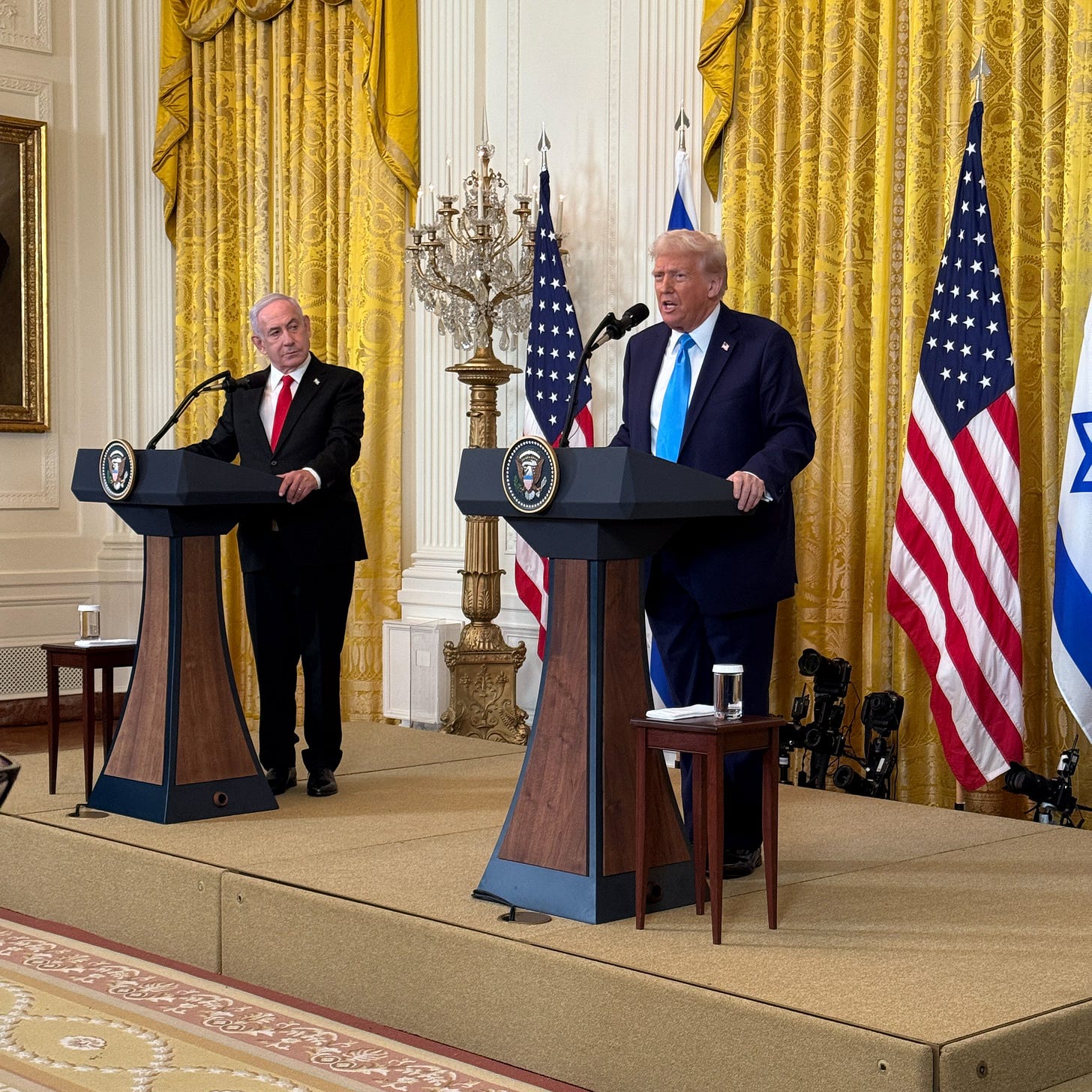This week, a senior Israeli official told the nation’s public broadcaster, KAN News, that the Israeli government should seek a regime change in Iran before the end of Donald Trump’s presidency. This echoes similar remarks from Israeli Prime Minister Benjamin Netanyahu to military officials, directing them to prepare for the destruction of the Iranian axis. Political commentator and analyst Tucker Carlson, a leader of the America First movement and sharp critic of the drift toward war with Iran, also stated this week that Israel has been pushing a regime change war against Iran since Donald Trump’s first days in office.
Left unsaid by Israeli officials is that Israel would almost certainly not do the heaviest lifting in such a military project, but that instead it would fall on the shoulders of the American military - despite the Trump administration’s professed desires to turn the page on the era of bloody regime change wars and costly nation building.

Ultimately, there appears to be a severe mismatch between Israel’s desires and its capabilities vis-a-vis Iran. Iran has more than nine times the population of Israel and is seventy-five times larger. Yet the geopolitical rivalry between the two nations has been tilted in Israel’s favor by both severe economic sanctions on Iran and near-unchecked U.S. military support of Israel, which in 2024 helped surge Israeli military spending to more than $46 billion, a total that some estimates indicate is five times greater than total Iranian military expenditures.
Yet Israel’s extremely capable military has proven much more adept at bloodying its enemies than uprooting them. Despite leveling the vast majority of Gaza over more than two years of war, likely killing hundreds of thousands in the process, Hamas has been severely weakened yet is not gone. In September, French President Emmanuel Macron stated that Hamas had as many fighters as when the war first broke out, suggesting fertile ground for recruitment amid the devastation of Gaza. Hezbollah, as well, is seriously battered yet continues to resist pressure to disarm. And these are non-state actors close to Israel’s borders, not a regional power more than 1,000 miles away.
The Islamic Republic is an unpopular government, hated by many Iranians for its brutal crackdowns on popular protests and blamed for the manifold challenges Iranians face, including a bleak economic present and future amid the harsh impact of ever-present economic sanctions. The gap between the rulers and the ruled has created vulnerabilities that Israel has exploited for years, culminating in the apparent recruitment of cells that attacked from inside Iran at the outset of the 12 day war. These fractures could give the appearance of a regime vulnerable to toppling, yet they also risk obscuring many of the factors that have ensured the system endures.
The 12 day war offers a case study in the restraints Israel faces. Operating with the advantage of surprise, Israel killed many of Iran’s senior commanders and disabled a significant portion of its defense and reprisal capabilities. Yet Israel, alone, could not deliver significant blows to the Iranian nuclear sites - it needed the U.S. to intervene. Moreover, Iran recovered from its initial setbacks and started landing missile strikes in the heart of Israel, adapting its strategies and proving more adept at avoiding the layered missile defense shields over Israel as the war went on.
Amid the fog of war, Israel appears to have pursued some degree of effort to trigger mass defections and an uprising. Netanyahu even suggested on the third day of the war that Israel’s warfare “certainly could” lead to regime change in Iran, noting the unpopularity of the Iranian government. Yet calls to Iranian military commanders, threatening them and their families with death, did not appear to lead to a single defection. Separate half-baked attempts to trigger an uprising around the bombing of Evin prison didn’t turn Iranians out to the street, but instead provoked widespread anger. Many Iranians hate their government, but that doesn’t mean that they’ll turn out for any foreign belligerent that comes calling.
Both of these factors suggest that Israel would face considerable difficulty in provoking a regime change in Iran. A full-scale invasion, with hundreds of thousands of boots on the ground in an open-ended occupation, would likely be required to overthrow the Iranian government and install another. That would both be extremely atypical for the Israeli military and likely beyond its means. Separate efforts to provoke a mass movement that ousts the Iranian government may be attempted, but would also face strong headwinds. The Iranian government maintains a monopoly on violence and arrests opposition leaders that emerge. Moreover, the likelihood of mass defections in the Iranian military amid an external threat appears low.
What, then, would Israel seek to do? Assuming Israel’s leaders are hell-bent on regime change in Iran, one would have to assume they expect the U.S. - and the Trump administration in particular - to take on this project for them. Yet it is hard to imagine a venture less in line with the mantra of “America First.”


